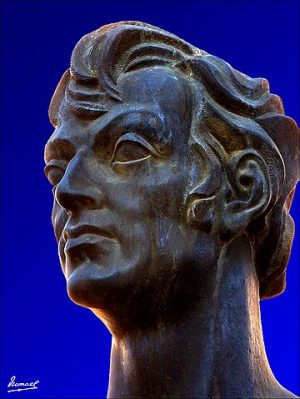The Lively (and Nauseous) Genius of Martial’s Epigrams
Note: This is the final repost from Thermidor, originally published June 5, 2018. As with all of these, this is presented with only minimal editing.
Last time we talked about Roman poetry, it was on Catullus’ “stately bawdiness.” Today, we’ll move forward roughly a century to Martial, who was born in what’s now Spain in A.D. 40. He moved to Rome at twenty-four years old to pursue a literary career, with some success, but eventually grew tired of life in the capital and so moved back to Spain in 100. We don’t know the exact date of his death, but it was no later than 104.
